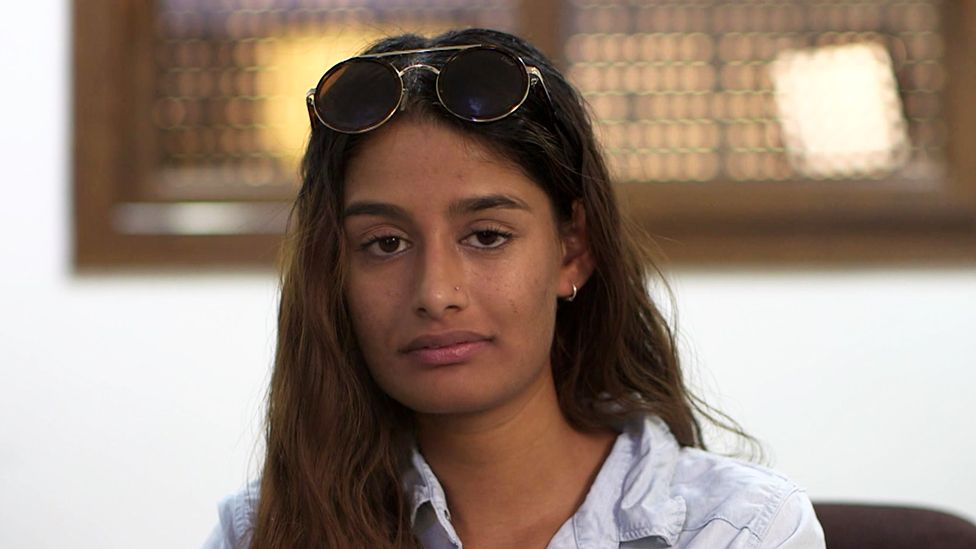By Khadija Khan
Shamima Begum has been making the headlines ever since she left the UK as a 15-year-old to join Islamic State.
And if you thought you hadn’t heard enough of her sob stories and tales of remorse, she has offered a window into her life in the terrorist group in the BBC podcast ‘The Shamima Begum Story’.
Over the course of 10 episodes, Josh Baker and his team have conducted numerous interviews with Shamima in Syria, to try and uncover who the now 23-year-old is today, and whether the repentance she now claims to feel for her actions is genuine.
Begum has been trying to get back to UK ever since she was found by a journalist at a Syrian refugee camp in 2019. She was subsequently stripped of her British citizenship on national security grounds, banning her from returning to the UK. She appealed this decision but recently lost her case.
When the BBC first announced it would be delving into Begum’s story, it received a huge backlash for giving a platform to the jihadi bride.
The corporation hit back, and said the podcast was an important piece of investigative journalism. “This is not a platform for Shamima Begum to give her unchallenged story,” it insisted. “This is a robust, public interest investigation into who she really is and what she really did… We’d encourage people to listen and watch in full.”
Despite what it claimed were noble intentions, hundreds of complaints were sent to the BBC, blasting the podcast as “inappropriate”.
Indeed, when I first heard about the series, my main concerns were over the efforts to present Shamima as a mere victim of “grooming” or “trafficking”, which seems to be the prevailing narrative from certain sections of the public and media who have a more charitable view towards her.
I took to Twitter to ask Josh Baker whether there were any accounts of Yazidi women (the real victims of ISIS) in his podcast. Nothing controversial, I’m sure many will agree. And yet to my utter astonishment, he blocked me.
Nonetheless, I was twice invited on BBC Radio 5 Live radio to comment on Begum’s case – but on both occasions, my appearance was cancelled. In fact, on the second time Josh Baker himself was on the show.
This speaks volumes about the BBC and its inclination to present one version of Shamima’s story, despite its repeated mantra of impartiality.
In my view, this podcast has been instrumental in pushing a seemingly partial narrative, which aims to convince the world that this jihadi bride is largely innocent and deserves forgiveness.
Words such as “young” and “vulnerable” were repeatedly used to describe her in the podcast with a clear motive to humanise her story.
During the podcast, Begum insisted that she is “not a bad person” and isn’t the threat people perceive her to be. “I’m just so much more than Isis and I’m so much more than everything I’ve been through.”
Evidently, Shamima’s story seems to haze elements of complicity and collusion with what actually happened under ISIS. There was an ongoing genocide of the Yazidi people at that time and a vicious slave trade of Yazidi women that hardly got a mention.
Shamima was asked by Baker about preparing suicide vests and being a member of ISIS’s morality police – allegations that she strongly denies – but she was never asked about the Yazidi women and girls.
ISIS brides reportedly kept these poor women as domestic slaves, subjecting them to beatings and humiliation. Moreover, they also allegedly prepared them to be raped by their jihadi husbands.

Begum was never questioned about that in the podcast. Nor was there an interview with a Yazidi woman who could have challenged her claims. For me, this brings into question the BBC’s reputation of being an impartial broadcaster.
When Baker asks Shamima Begum in the podcast about how she got to Islamic State, there seems to be a counter argument intended to make her look like a victim of grooming and trafficking.
For example, he says at one point: “She clearly went out of her way to look up information herself” about ISIS, before following it up with his own judgement: “But she does seem to have been fed detailed instructions about what to do and she was just 15 years old.”
Begum’s ideological allegiance to the Islamist ideology is yet to be questioned. She blames her family, alleged racism in British society, and even her friend Sharmeena Begum for her predicament (she was the one who apparently inspired Shamima to leave the UK). But she doesn’t condemn the ideology that inspired her to join a death cult in the first place.
The podcast certainly provides a detailed understanding of how Shamima swapped her relatively comfortable life in London for the war-torn streets of Raqqa. It is all interesting detail. However, after multiple interviews, we know nothing of her views on a dogma that condones the genocide of ‘infidels’ and the sexual enslavement of their women and children.
So for the BBC to brush off the complains about this programme is a callous response to many who have grave concerns about the portrayal of a person who still poses a threat to national security. Instead, she is presented as a naive ad silly schoolgirl who stuffed her bag with Mint Aero chocolate because she knew she would not be able to find it in Syria. “It was a tragedy,” she said. Never mind the actual tragedy that the real victims of ISIS went through.
The podcast managed to find Begum’s friend Sharmeena just in time for the last episode, which further portrayed her as an innocent bystander who just happened to stumble into ISIS territory.
Sharmeena claims that Begum was “just another individual, living off the benefits” who “did not contribute at all”. She dismissed the theories about Shamima sewing ISIS fighters into their suicide belts and working in for the morality police, because “her husband never allowed her to go out.”
Some of these statements are taken from an online account, which is yet to be verified. Useful information? Perhaps. But it does fit the narrative of this series.
In the meantime, the corporation ignores the real victims in all this. A Yazidi woman who says she was kidnapped and sold into sexual slavery aged 13, said that she saw Begum at the terrorist training camp in Deir ez-Zor, Syria.
So two narratives have emerged side by side: one from a woman who claims to have seen Shamima at a training camp. The other from Begum’s friend, who dismisses any such notions. Yet, regrettably, the BBC chose not to add the former to the podcast.
Nothing is progressive and humane about not amplifying the voices of Yazidi women – who remain the neglected victims of ISIS. Unfortunately, their anguish is buried under the outpouring of sympathies for Shamima Begum.
For that reason, time may very well judge this podcast – and indeed the BBC – as being on the wrong side of history.

Khadija Khan is a journalist and commentator based in London. You can follow her on Twitter.

